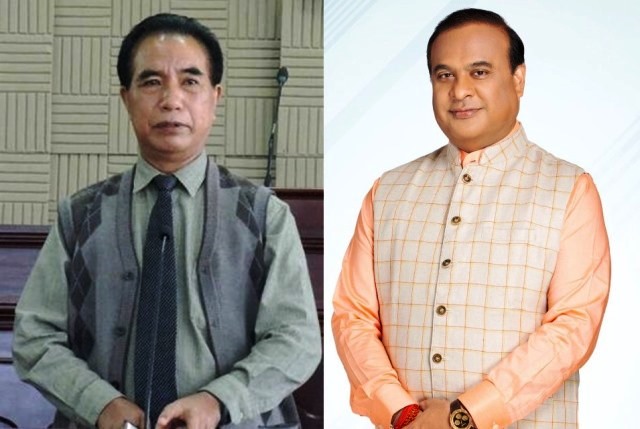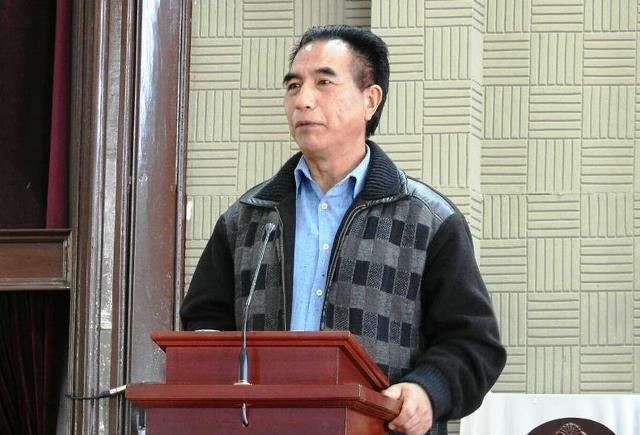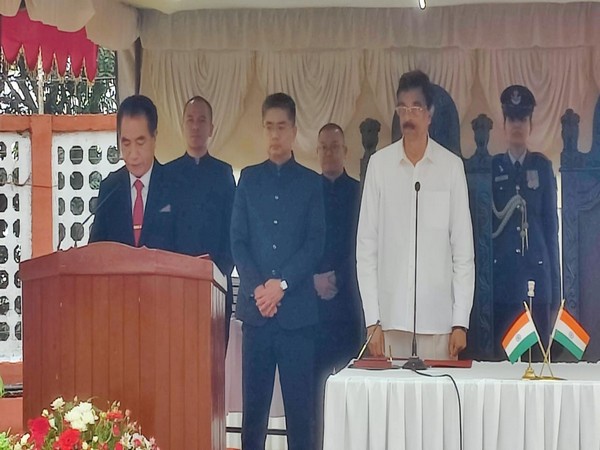The strategic and also commercial importance of the seven north-eastern states Assam, Arunachal Pradesh, Manipur, Meghalaya, Mizoram, Nagaland and Tripura and also what is described as the brother state Sikkim cannot be overemphasized. All these states combined have common borders with China, Bangladesh, Myanmar and Bhutan. Security aspect aside, the north-east if given a robust infrastructure and commercial acumen could emerge as an important gateway for trade with neighbouring countries. As it would happen, the potential of the region, which is a rich mosaic of culture and social practices, has very largely remained unexplored because of continuing indifference of mainland powers that be and people in general to the north-east.
Such being the reality causing despair among north-easterners for not being able to meaningfully participate in and benefit from economic progress happening elsewhere in the country, it is good that the largely overlooked region left to fend for itself and periodically the scene of internecine conflicts has now Lalduhoma as chief minister of Mizoram. But what is so special about Lalduhoma that he could become the agent to bring national focus to a long overlooked group of states?
As an IPS officer who looked after the security of Prime Minister Indira Gandhi and subsequently became a member of the Lok Sabha from Mizoram in 1984, Lalduhoma is familiar with the goings on in Delhi. His recent first trip to the capital and apparently productive discussions with Prime Minister Narendra Modi, Home Minister Amit Shah and some other ministers go to confirm while he will maintain the distinct identity of Zoram People’s Movement (ZPM) without aligning with either the Congress or BJP in any way, in true federal spirit he will be seeking the Centre’s help for the state’s development. Lalduhoma conducted himself in true federal spirit during his maiden trip to New Delhi as CM and seemed to have secured assurances of development from central ministers.
What actually is the outcome of the 74 year old Mizoram CM’s visit to Delhi? He came to the capital soon after the Union government announced the plan to build a fence over a 300-km stretch of unfenced boundary with Myanmar and also end the 40 year old free movement regime, allowing people living on both sides of international border to travel within 16 km into each other’s territory without visa. New Delhi’s compulsion to build the fence along the border with a disturbed country is well understood. Mizoram is hosting more than 31,000 individuals belonging to the Chin community from Myanmar who had to flee their country following a coup by the army in February 2021. Now, close to 10,000 displaced people from Manipur, victims of ethnic violence, have taken shelter in Mizoram.
It goes to the credit of Mizoram and all the local parties that they are bearing the burden of sheltering and providing basic support to refugees from across the border and also to Kuki-Zo community members despite fund crunch. That the CM has been able to secure some help from New Delhi in looking after displaced people is clear from what Lalduhoma said on his return to Aizawl: “Even though the Centre can’t accord refugee status to the Myanmar nationals, it is ready to collaborate with us in providing relief to them. People from Manipur, who fled their homes due to ethnic violence, will also be looked after with help of the central government.”
Thankfully, New Delhi took cognisance of the fact that the Chin community from Myanmar and Kuki-Zos from Manipur have common ethnic ties with the Mizos. Lalduhoma was bold enough to tell Modi that the Chin people “are not strangers, but brothers with identical blood running through our veins.” To the relief of the newly minted Zoram People’s Movement (ZPM) government, Lalduhoma secured assurance from Shah that New Delhi though would not grant refugee status to people from Myanmar, it would not ask them to leave till normalcy was restored in their country. Moreover, there will be handholding of Aizawl in looking after the people from Myanmar and Manipur.
ALSO READ: Methodical Mizoram Votes For A Change
A much bigger challenge for Lalduhoma will be to ensure that the 12 priority programmes of ZPM government are implemented within 100 days and 2024 becomes the year of financial consolidation. The new regime having embraced economic development as the mantra says redemption will come with investments coming from the centre, particularly in infrastructure development and private sector making use of the state’s “rich natural resources.”
The Christian dominated Mizoram has a rate of literacy much higher than the national average of 77.7 per cent. Despite this, the employment scene, particularly among the young, has remained dismal. Before the last election in which ZPM won 27 of 40 seats, Mizoram was governed by the Congress and Mizo National Front (MNF) by turn. Both were found wanting in creating an environment for investment. The apathy of the centre was also palpable. In fact, Aizawl found New Delhi to be distant and domineering. That also is a common experience of other north-eastern states.
The other day, the country was witness to unbound rejoice in the Union Home Ministry and also in Assam government, which is ruled by BJP, over the signing of a ‘peace accord’ with pro-talks faction of the United Liberation Front of Asom (ULFA), led by Arabinda Rajkhowa. But such celebrations may be premature and peace in the north-eastern state may still be eluding, for Paresh Baruah heading the more aggressive and militant ULFA (Independent) has stayed away from the peace agreement.
A fugitive from his own country and reportedly moving in Myanmar-China border areas, Baruah has made his participation in peace talks difficult, if not impossible by insisting on the government conceding his demand for discussion on sovereignty. Thankfully, Assam chief minister Himanta Biswa Sarma has expressed the hope that it is only a matter of time before Baruah returns to the mainstream and “joins the peace process.”
ULFA formed four decades ago has a chequered history and the combined outfit was responsible for a series of violent acts in different parts of the state resulting in a couple of major army operations and also dismissal of the first Asom Gana Parishad (AGP) government for its failure to tame insurgency. ULFA militants would carry out disturbingly large insurgency operations striking terror and then disappear in their camps in Bangladesh.
Mercifully, the Sheikh Hasina government removed all such camps and steadfastly refused to play host to ULFA militants from across the border. The split between the pro-talk group and the obstinately uncooperative ULFA wing in finding a solution to contentious issues involving identity, land ownership and claims to natural resources of indigenous population has remained beyond repair.
Howsoever recalcitrant Baruah may still sound from the foreign base, he knows that the tripartite accord to which Rajkhowa group is a signatory has taken some steam out of his sovereignty campaign. The three principal features of the accord that would certainly make Baruah sit up and take note are: The highly controversial and sensitive Armed Forces Special Powers Act (AFSPA), giving Army extraordinarily large powers is lifted from85 per cent of the state; proposed investment of around Rs1.5 lakh crore for a number of development projects and third, delimitation of the majority of assembly seats that should work to the advantage of indigenous communities. Shah has promised “tome-bound implementation of the terms of memorandum of settlement by the centre and the Assam government.” People will be watching the earnestness of the government in implementing the clauses of the agreement in letter and spirit.
For more details visit us: https://lokmarg.com/


